10 Best Herbal Baths For Insomnia

Herbal baths have gained popularity as a natural remedy for insomnia, offering a soothing way to unwind before bedtime.
Certain herbs such as lavender, chamomile, and valerian root are known for their calming properties and can help reduce anxiety and promote relaxation. Adding these herbs to a warm bath can ease muscle tension and create a peaceful environment conducive to sleep. The act of soaking in warm water also helps lower body temperature, which is a natural signal for the body to prepare for rest.
Incorporating herbal baths into a nightly routine can be an effective complementary approach to improving sleep quality and managing insomnia.
Table of Contents
- 1. Valerian (Valeriana officinalis)
- 2. Maypop (Passiflora incarnata)
- 3. Lemon balm (Melissa officinalis)
- 4. English lavender (Lavandula angustifolia)
- 5. Hops (Humulus lupulus)
- 6. Nux vomica (Strychnos nux-vomica)
- 7. Wheat (Triticum aestivum)
- 8. Chamomile (Matricaria chamomilla)
- 9. Yarrow (Achillea millefolium)
- 10. Blessed thistle (Cnicus benedictus)
1. Valerian (Valeriana officinalis)

Valeriana officinalis, commonly known as valerian, is a traditional herbal remedy often used to promote relaxation and improve sleep quality.
Herbal baths infused with valerian root can help alleviate insomnia by calming the nervous system and reducing anxiety. The essential oils and compounds in valerian, such as valerenic acid, are believed to interact with the brain's GABA receptors, which play a key role in regulating sleep. To prepare a valerian bath, steep dried valerian root in hot water for several hours, then add the liquid to a warm bath.
This soothing practice can create a calming environment that encourages restful sleep, making it a natural alternative for those seeking relief from insomnia.
2. Maypop (Passiflora incarnata)
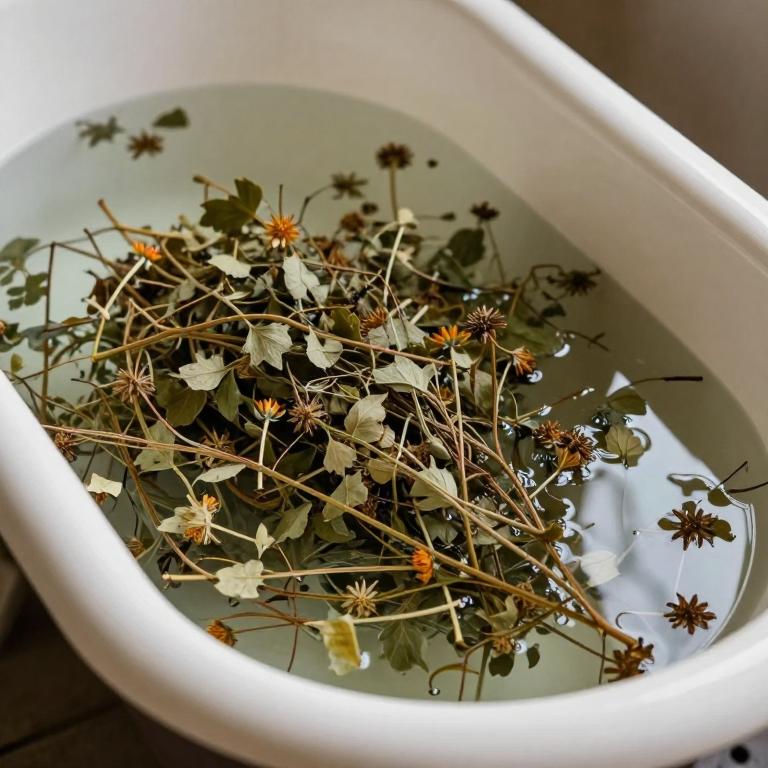
Passiflora incarnata, commonly known as passionflower, is a herbal remedy traditionally used to promote relaxation and improve sleep quality.
When incorporated into herbal baths, its calming properties can help reduce anxiety and ease the symptoms of insomnia by soothing the nervous system. To prepare a passionflower bath, steep the dried leaves in hot water for several minutes, then add the infusion to warm bath water. This practice can create a relaxing environment that encourages restful sleep.
Regular use of passionflower baths may support better sleep patterns and overall well-being for individuals struggling with insomnia.
3. Lemon balm (Melissa officinalis)
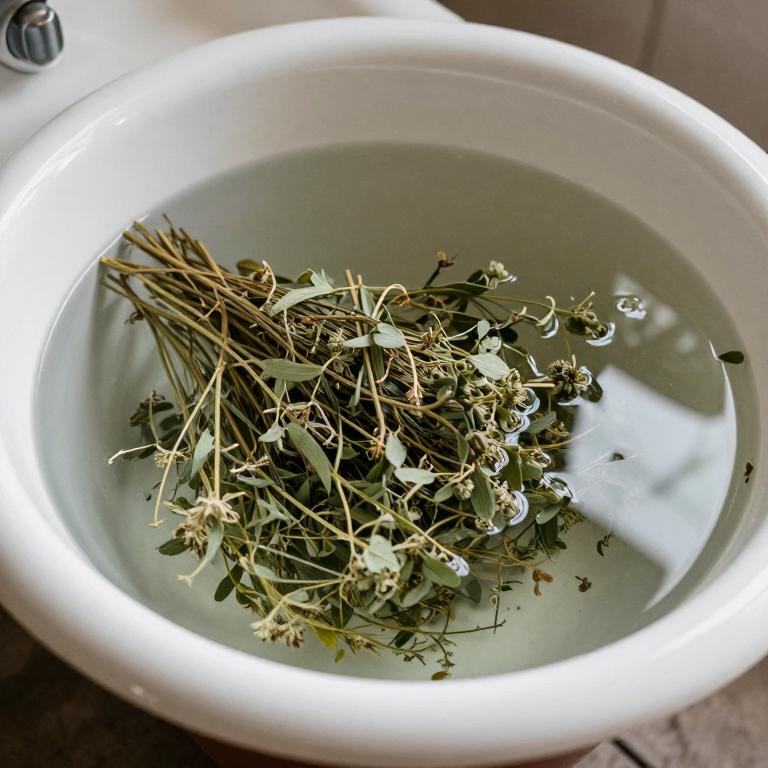
Melissa officinalis, commonly known as lemon balm, has been traditionally used in herbal baths to promote relaxation and improve sleep quality.
When infused into bath water, the calming properties of lemon balm can help reduce anxiety and ease the symptoms of insomnia. The soothing aroma of lemon balm is believed to interact with the nervous system, encouraging a state of tranquility and preparing the mind and body for rest. Herbal baths with lemon balm are often recommended as a natural alternative to sleep aids, offering a gentle and holistic approach to managing sleep disorders.
Regular use of lemon balm baths may contribute to better sleep patterns and overall well-being.
4. English lavender (Lavandula angustifolia)

Lavandula angustifolia, commonly known as English lavender, is widely used in herbal baths for its calming properties that can help alleviate insomnia.
When infused into bathwater, the essential oils from dried lavender flowers release soothing aromas that promote relaxation and reduce anxiety, making it easier to fall asleep. The warm water combined with the gentle scent of lavender can ease muscle tension and create a peaceful atmosphere conducive to restful sleep. Many people find that taking a lavender bath before bedtime helps them unwind and improve the quality of their sleep.
This natural remedy is a gentle and accessible option for those seeking non-pharmacological ways to manage insomnia.
5. Hops (Humulus lupulus)
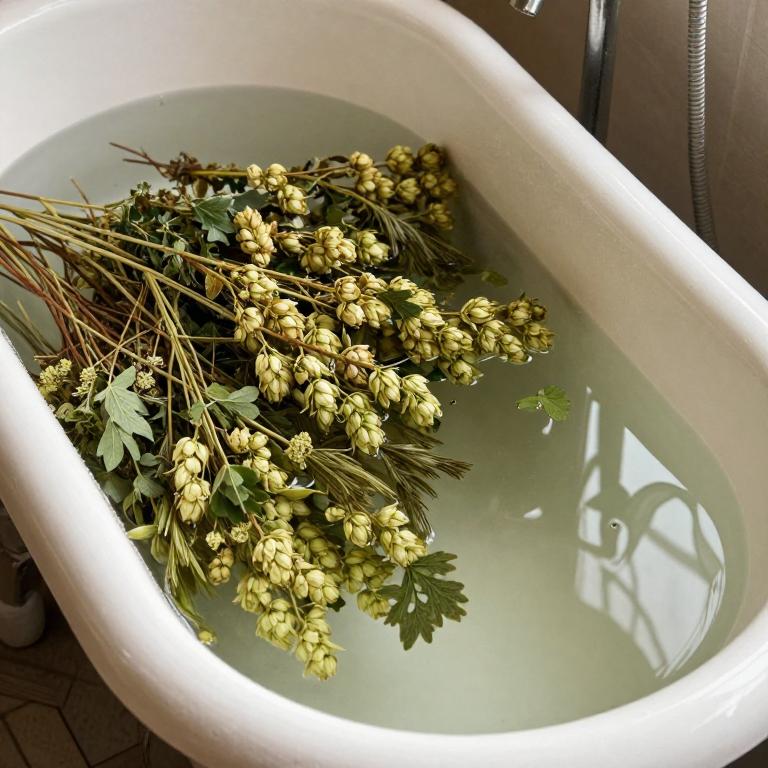
Humulus lupulus, commonly known as hops, has been traditionally used in herbal baths to promote relaxation and improve sleep quality, particularly for those suffering from insomnia.
The calming properties of hops are believed to stem from its high concentration of essential oils and compounds like humulene and lupulone, which have mild sedative effects. When infused into bathwater, these compounds can help soothe the nervous system, reduce anxiety, and ease the transition into sleep. Many users report that a hops-infused bath can help them unwind and achieve a more restful night's sleep.
However, it is important to use hops in moderation and consult with a healthcare provider, especially for those with allergies or existing medical conditions.
6. Nux vomica (Strychnos nux-vomica)
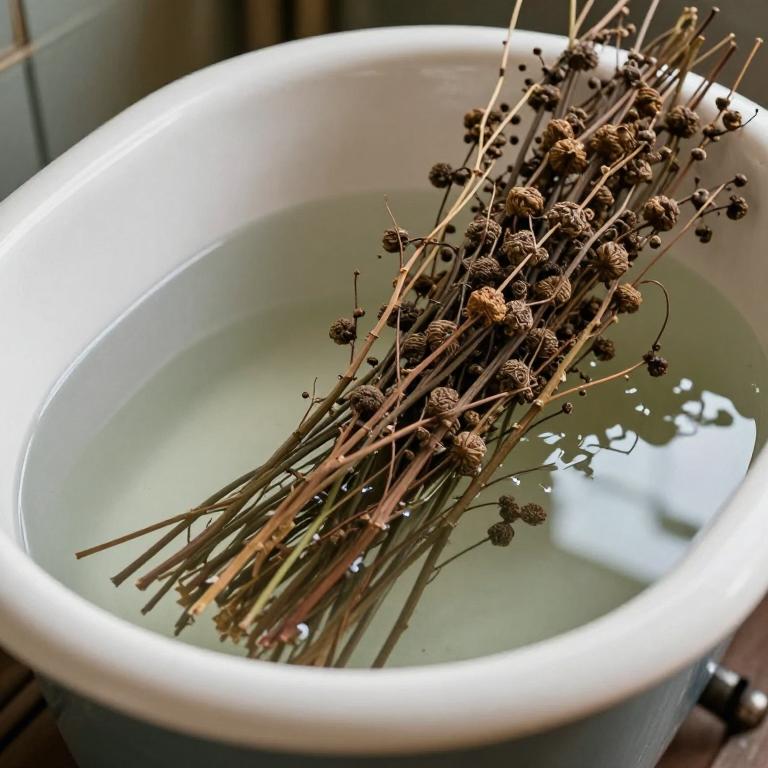
Strychnos nux-vomica, a traditional herbal remedy, has been used in some alternative medicine practices for its purported ability to promote relaxation and improve sleep.
When used in herbal baths, the plant's compounds may interact with the nervous system to alleviate insomnia by reducing anxiety and inducing a calming effect. However, it is important to note that nux-vomica contains toxic alkaloids, such as strychnine and brucine, which can be harmful if not properly diluted or used under professional guidance. Due to its potency and potential risks, it is not recommended for use without expert supervision.
As a result, while some individuals may find relief from insomnia through these baths, they should be approached with caution and only under the care of a qualified herbalist or healthcare provider.
7. Wheat (Triticum aestivum)

Triticum aestivum, commonly known as wheat, has been traditionally used in herbal baths to promote relaxation and alleviate insomnia.
The soothing properties of wheat-based bath products are believed to help calm the nervous system, making it easier for individuals to fall asleep. These baths often involve soaking in water infused with wheat germ, bran, or flour, which can provide a gentle exfoliating effect while also releasing calming compounds. The warmth of the water combined with the aromatic elements of wheat can create a serene environment conducive to restful sleep.
As a natural remedy, wheat-based baths offer a safe and holistic approach to managing insomnia without the side effects associated with pharmaceutical interventions.
8. Chamomile (Matricaria chamomilla)
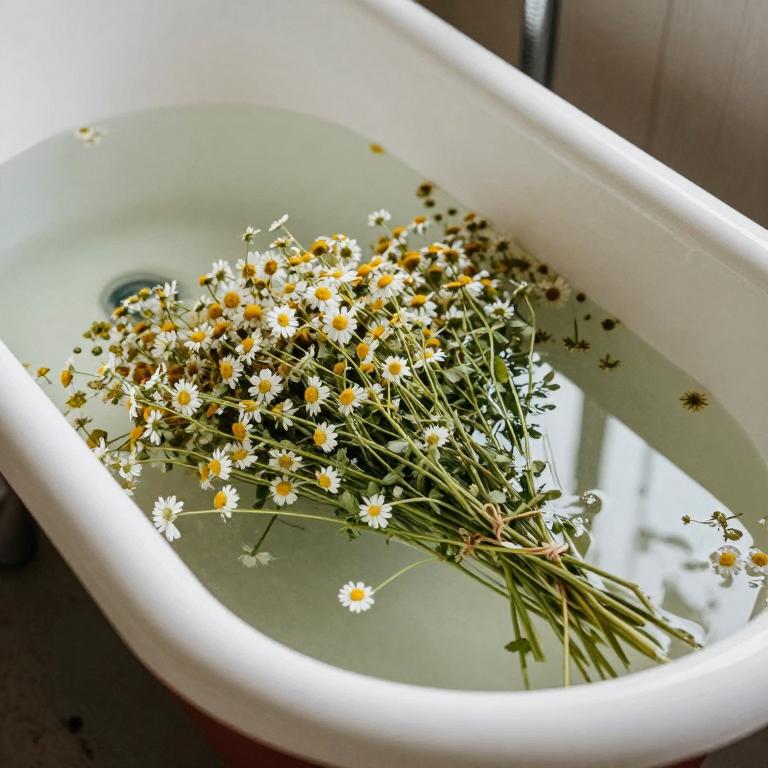
Matricaria chamomilla, commonly known as chamomile, is a popular herbal remedy often used in baths to promote relaxation and improve sleep quality.
When infused into bathwater, chamomile releases soothing compounds that can help reduce anxiety and calm the nervous system, making it particularly beneficial for individuals suffering from insomnia. The gentle warmth of the bath combined with the calming effects of chamomile can create a restorative environment that encourages deeper relaxation and easier onset of sleep. To prepare a chamomile bath, steep a handful of dried chamomile flowers in hot water for several minutes, then add the liquid to a warm bath before soaking for 15 to 30 minutes.
Regular use of chamomile baths may help establish a calming bedtime routine, supporting long-term improvements in sleep patterns and overall well-being.
9. Yarrow (Achillea millefolium)

Achillea millefolium, commonly known as yarrow, has been traditionally used in herbal baths to promote relaxation and ease insomnia.
When infused into warm water, yarrow's soothing properties can help calm the nervous system and reduce anxiety, making it easier to fall asleep. The anti-inflammatory and sedative effects of yarrow may also support overall sleep quality by alleviating physical discomfort that disrupts rest. Herbal baths with yarrow are often recommended as a natural alternative to pharmaceutical sleep aids, offering a gentle and holistic approach to improving sleep.
However, it is important to consult with a healthcare provider before using yarrow baths, especially for individuals with allergies or specific medical conditions.
10. Blessed thistle (Cnicus benedictus)
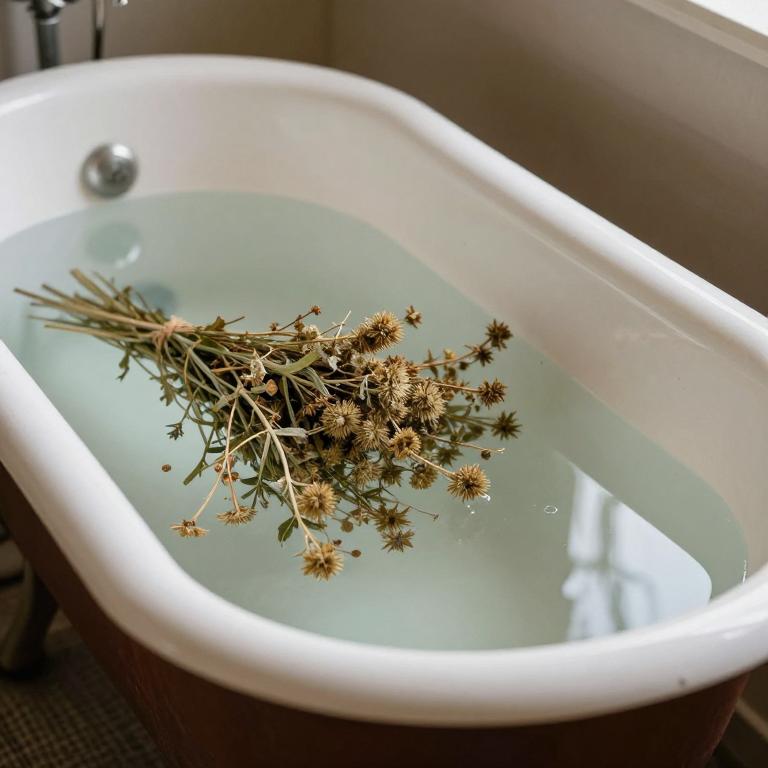
Cnicus benedictus, commonly known as blessed thistle, has been traditionally used in herbal baths to address insomnia due to its calming and soothing properties.
When infused into bathwater, the essential oils and phytochemicals from the plant may help relax the nervous system and promote a sense of tranquility, aiding in the process of falling asleep. The warm water combined with the herb's mild antispasmodic and sedative effects can ease muscle tension and reduce mental agitation, making it particularly beneficial for those with restless or anxiety-related sleep issues. While more research is needed to confirm its efficacy, many holistic practitioners recommend blessed thistle baths as a natural complement to other sleep-supporting routines.
Overall, this herbal bath offers a gentle, natural approach to improving sleep quality and addressing insomnia through aromatherapy and relaxation.